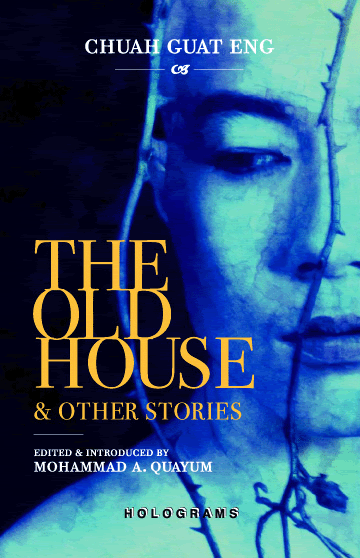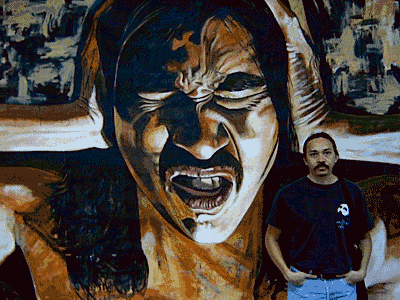Proving it's two strikes you're in as far as film festivals goBy Paul Agusta. 12 December.
The Jakarta Post.
Neither of the documentary films Amir Muhammad of Malaysia has in this year's Jakarta International Film Festival (JIFFest) have ever been screened publicly in his own country. They were banned;
The Last Communist was rejected after initial approval due to the outcries of an influential conservative newspaper, and
Village People Radio Show was banned before it was born, having been deemed a sequel to its notoriously naughty big brother.
"I've learned not to anticipate anything. After all, Ching Peng's (the last communist from the film's title) memoirs were sold openly and it was not banned," said Amir of the banning of his films. "The Information minister, Zainuddin Maidin, had a beautiful explanation of this discrepancy: `Malaysian's don't read books'."
"The irony is that I just wanted to show it on three small digital screens and the book has been read by more people than those three screens could pack in even if it played for a solid month," said the constantly smiling filmmaker and author, who just celebrated his 35th birthday on Dec. 5.
"Both were released in Singapore at one cinema, and then on DVD," said Amir.
"They were also both sold to Korean TV," he added. "
The Last Communist even made it into 30 film festivals, and it got positive responses in Berlin and Toronto," Amir explained.
Back home, the Malaysians who forked out 10 ringgit (Rp 27,000 or US$3) at pirated DVD stalls to see what all the fuss was about were left scratching their heads.
"The main response I heard was `Full of old people talking only'. I guess they were expecting an action movie," Amir said.
"Even the die-hard leftists who saw it were disappointed," Amir explained. "So I managed to disappoint both conservatives and radicals."
Whatever the fate of the two films in their land of origin, they have garnered a lot of interest abroad, and not only because of the banning controversy, but also due to the experimental approach Amir takes to documentary filmmaking in general.
Know for his surgically sharp wit, this law school graduate who never practiced because he never felt it necessary to take the bar exam, has consistently pushed the boundaries of what documentaries are assumed to be, while affectionately dissecting the complex irony that colors the way of life and being in his homeland.
Yet, according to Amir, it was Indonesia that inspired him to do both of the films now on JIFFest screens.
"It all came directly out of my experience of making
The Year of Living Vicariously, where a lot of it consisted of interviewing people about their memories," Amir explained.
The Year of Living Vicariously (2005) began as documentary of the production of Indonesian director Riri Riza's
Gie, a film whose backdrop is the communist drama of 1960s Indonesia. However, while Amir was on set, he started asking actors and crew members what they knew about the events of that time. What he got was what he refers to as "inherited memories". "So I wondered what the Malaysian equivalent would be, and that was about the same time that Chin Peng's memoirs were released. Chin Peng was the last secretary-general of the Communist Party of Malaya," Amir explained.
"I read the book when I got back to Malaysia, and I was struck by the towns he grew up in. So I wanted to do a road tour as I was not familiar with those towns," Amir said.
"So it (
The Last Communist) is a map of two different kinds of landscapes, the physical one and the one mapped by memories and myths," Amir explained.
"Seeing that Malaysians are much less politicized than Indonesians, most people ended up talking not about 'the communist era' but about their own livelihoods, so I kept that in," Amir said.
Amir feels that the main function of documentaries is not to impart information, but to communicate a sense of place.
"Documentaries are a branch of cinema rather than a branch of news," he said. "But art isn't the doily on the table; art is the material of the table itself."
He continued: "If it is obvious that your intention is to lecture or hector, people's responses will be programmed from the opening minute. I think that if you are very sure of what your film will be like before making it, why bother making it? I think that filmmakers should challenge themselves too."
* The Last Communist is to be screened on Dec. 14 and 16 and Village People Radio Show on Dec. 12, 13 and 14. For more information go to www.jiffest.org or phone (6221) 31925115.






